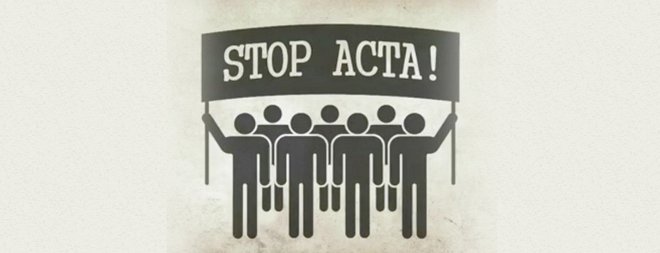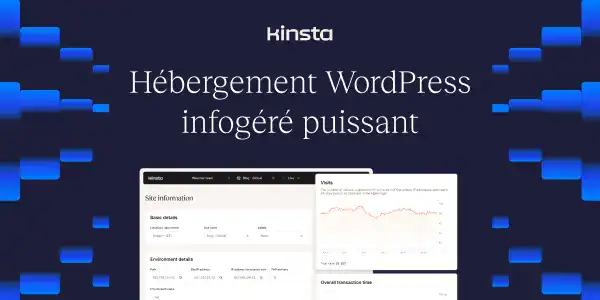Qu’est-ce qu’ACTA ?
ACTA est une offensive de plus contre le partage de la culture sur Internet. ACTA est l’Anti-Counterfeiting Trade Agreement (ou accord commercial anti-contrefaçon), un accord négocié secrètement entre 2007 et 2010, dans l’ombre et en gardant le public dans l’ignorance plutôt que débattu démocratiquement.
Jusqu’à 2010, toutes les informations relatives à ACTA ont été des fuites qui révélaient le secret intentionnel pour dérouter le public.
ACTA contourne les parlements et les organisations internationales pour imposer une logique répressive dictée par les industries du divertissement en créant de nouvelles sanctions pénales forçant les acteurs d’Internet à surveiller et à censurer les communications en ligne.
Quels pays ont déjà signé ACTA ?
1er octobre 2011 : le Japon et les USA, à l’origine du traité avec le Canada, l’Australie, la Nouvelle-Zélande, Singapour et la Corée du Sud.
26 janvier 2012 : la Commission Européenne, en charge des négociations avec des représentants non-élus de 22 états membres : Autriche, Belgique, Bulgarie, République Tchèque, Danemark, Finlande, France, Grèce, Hongrie, Irlande, Italie, Lettonie, Lituanie, Slovénie, Luxembourg, Malte, Pologne, Portugal, Roumanie, Espagne, Suède et Royaume-Uni.
3 février 2012 : la Pologne annonce qu’elle suspend le processus de ratification : “it had made insufficient consultations before signing the agreement in late January, and it was necessary to ensure it was entirely safe for Polish citizens”. (source)
6 février 2012 : Le Premier ministre tchèque Petr Necas a annoncé lundi que son gouvernement allait suspendre le processus de ratification de l’accord multilatéral anti-contrefaçon ACTA, objet de vigoureuses protestations de nombreux internautes en République tchèque et dans d’autres pays.
Le cabinet “ne peut en aucun cas accepter une situation dans laquelle les libertés fondamentales et l’accès libre aux informations seraient menacés”, a déclaré M. Necas. (source)
La signature d’ACTA par les pays européens ne signifie pas que l’affaire est dans le sac : le traité doit encore être ratifié par le Parlement Européen, qui votera en juin 2012 pour ratifier ou rejeter ACTA.
Que contient véritablement ACTA ?
Cet accord est donc une menace majeure pour la liberté d’expression et est porteur d’insécurité juridique pour les entreprises de l’Internet. Au nom du droit des marques et des brevets, il pourrait également freiner l’accès aux médicaments génériques dans les pays pauvres.
Vous pouvez lire ce que propose ACTA ici.
À lire aussi :
- ACTA and its Impact on Fundamental Rights (16.01.2012)
- ACTA – Criminal Sanctions (17.01.2012)
- ACTA – Innovation and Competition (18.01.2012)
- ACTA and its Impact on the EU’s International Relations (19.01.2012)
- ACTA and its Safeguards (20.01.2012)
Ils l’ont dit…
Kader Arif, rapporteur de l’ACTA au Parlement Européen a cessé ses fonctions de rapporteur en disant :
”I want to denounce in the strongest possible manner the entire process that led to the signature of this agreement: no inclusion of civil society organisations, a lack of transparency from the start of the negotiations, repeated postponing of the signature of the text without an explanation being ever given, exclusion of the EU Parliament’s demands that were expressed on several occasions in our assembly.”
“This agreement might have major consequences on citizens’ lives, and still, everything is being done to prevent the European Parliament from having its say in this matter. That is why today, as I release this report for which I was in charge, I want to send a strong signal and alert the public opinion about this unacceptable situation. I will not take part in this masquerade.”
ACTA is legislation laundering on an international level of what would be very difficult to get through most Parliaments
— Stravros Lambrinidis, Member of European Parliament, S and D, Greece
The European Parliament has had no representation in ACTA negotiations. Just accepting or rejecting an agreement is not an exercise of democracy as under the Lisbon Treaty.
— Zuzana Roithova, Member of European Parliament, EPP, Czech Republic
It is extremely regrettable that democratic debate has been eliminated from talks that could have a major impact on such a fundamental freedom as free expression.
— Reporters without Borders, European Parliament Sakharov Prize Winners
Any measures concerning people’s right to go online need to be brought in through the proper democratic channels, not via self-regulation, and made into EU law
— Andrea D’Incecco, public affairs manager from EuroISPA (Business association of European Internet Service Providers)
We can only assume that the final text could do great harm in developing countries and undermine the balance between the protection of intellectual property and the need to provide affordable medicines for poor people.
— Rohit Malpani, OXFAM, from a press release criticising possible impact of ACTA.
We are in danger of ending up with the worst of both worlds, pushing IP rules, which are very effective at stopping access to life-saving drugs but are very bad at stopping or preventing fake drugs.
— Michelle Childs of Médecins Sans Frontières, Nobel Peace Prize winners, has issued a very critical statement on ACTA.
(source)
Réaction des Anonymous
Et dès qu’il s’agit de nos libertés, les Anonymous veillent et sont eux aussi sur la brèche :
Greetings, world. We are Anonymous.
We are here to reveal to you an arcane legal trick, which will be used to take away your freedom starting in June 2012. Your governments have been secretly negotiating the Anti-Counterfeiting Trade Agreement or ACTA as it is known. The title is misleading. The true goal of ACTA is to crush the internet, as we know it, and to take away your freedom.
We and other good people of this Earth have been pointing out a major problem with ACTA. The text of the agreement is extremely vague and can be interpreted in many ways. If read one way, ACTA does not endanger your freedom. If read another way, ACTA is the worst thing that has ever happened and will be used to take away your freedom and to crush the internet as we know it.
Supporters of ACTA are saying that each country, which ratifies ACTA, will choose their own interpretation. This is the biggest lie ever told.
Just like any other international agreement ACTA must be interpreted according to the Vienna Convention of 1969.
Article 32 of the Vienna Convention says that if any part of a treaty is ambiguous it must be interpreted based on documents produced during the drafting and negotiations phase of the agreement. For Acta these documents are classified and have never been made available to the public through official sources. Such secrecy has never surrounded any other global treaty in modern times.
In essence the true meaning of ACTA is being kept secret even from the governments who sign it.
Our friends at Wikileaks have obtained a small portion of these secret documents and their content is chilling. When all major governments of the world have signed and ratified ACTA, the secret documents will be gradually made public and the true meaning of ACTA will be revealed to the nations of the world.
Article 27 of the Vienna Convention says that all international treaties take precedence over any internal laws. The secret parts of ACTA will take precedence over any national laws. Governments will have no choice. Citizens will have no choice. The internet, as we know it, will end.
The last major obstacle in ACTA’s path is the European Parliament. In June 2012 the European Parliament will have its final vote on ACTA. If they vote to ratify ACTA, the world, as we know it, will end. Your freedoms will gradually disappear. Your internet will be gradually turned into a controlled, censored channel where you can only view content produced by a handful of companies.
ACTA is a declaration of war against every man, woman, and child on this planet.
If you are a politician, and you defend ACTA, you are guilty of treason of the highest degree and we will deal with you as such.
We will defeat ACTA.
We will not be silenced.
We will take to the streets.
We will take back our governments.
We are Anonymous.
We are legion.
We do not forgive.
We do not forget.
Expect us.
Aux armes citoyens !

Il est donc nécessaire de se mobiliser, parler d’ACTA autour de nous pour informer les gens de son existence (surtout qu’aucun média n’en parle vraiment à part Internet), signer la pétition et même contacter nos députés pour leur demander de voter contre cette loi liberticide.
Gardez les yeux ouverts.


En plus y a pas qu’acta, l’industrie du divertissement prépare l’Ipred avec la commission Européen…L’industrie veut tuer le net, parait même qu’Hollywood prépare le PPR un truc comme ça, un autre traité avec toutes les pires mesures anti-internet qui n’ont pas été retenus pour Acta..
Oui, ce n’est pas vraiment joyeux ce qu’ils nous préparent… c’est vraiment quelque chose à surveiller de près.
A lire également :
– Droits sur Internet : pourquoi le traité Acta fait polémique.
– «Acta n’est ni pertinent, ni efficace».